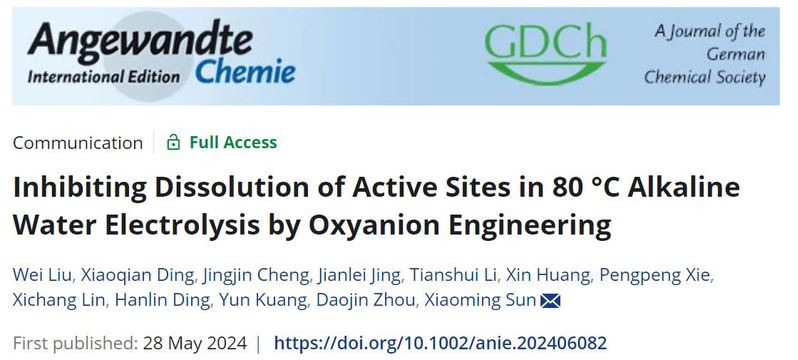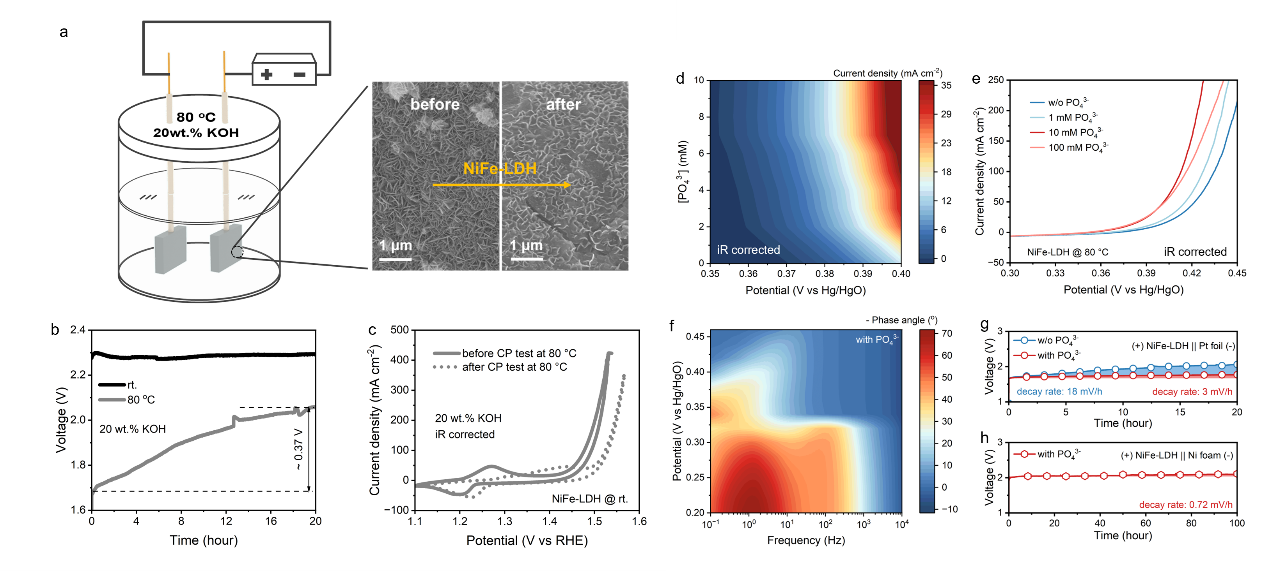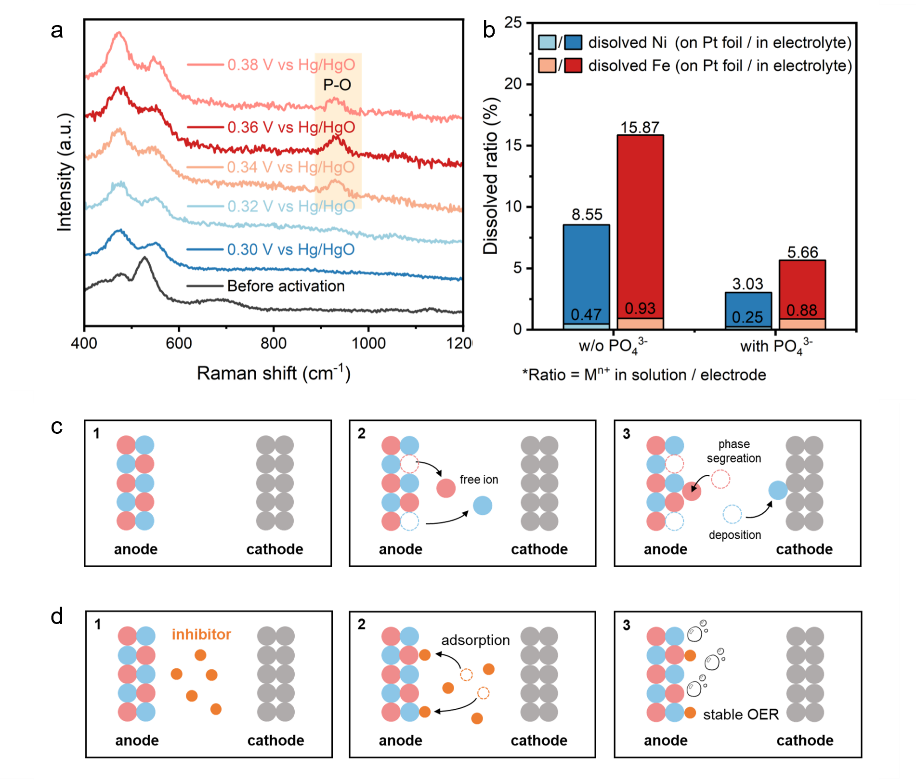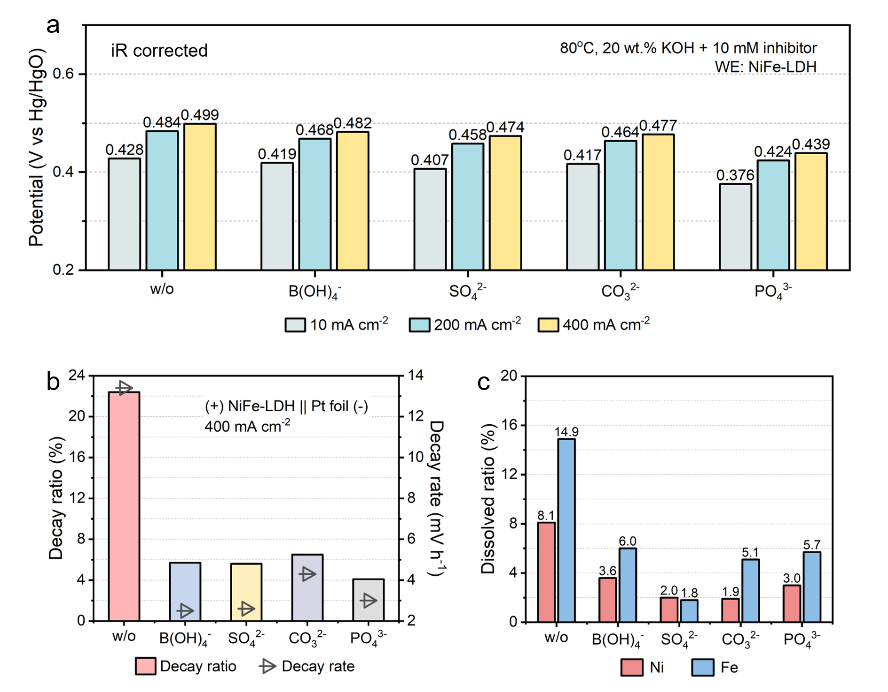
Alkaline water electrolysis is currently the most mature electrolytic hydrogen production system, and is key to achieving carbon peak and carbon neutrality. Hydrogen production processes based on this system typically operate at 80°C to reduce the electrical consumption of hydrogen production. However, NiFe-based catalysts, considered as one of the most promising candidates for anode, encounter the bottleneck of high solubility at such temperatures.This limitation significantly impedes the development of high-performance alkaline water electrolysers.

In this study, Professor Sun Xiaoming's team conducted research using NiFe-Layered Double Hydroxides (NiFe-LDH) as a model catalyst, first revealing that its deactivation at high temperatures (80°C) is related to the loss of active sites. Subsequently, by introducing phosphate ions (potassium tripolyphosphate) into the electrolyte, they found that the activity and stability of NiFe-LDH at high temperatures were both enhanced. The performance degradation rate of the two-electrode system in chronopotentiometry test was as low as 0.72 mV/h, which is 1/25th of the control group without phosphate.

The experimental results indicate that the phosphate ions in the electrolyte participate in the electrode reconstruction process, thereby forming active species of nickel (iron) hydroxyphosphate that are more stable than nickel (iron) oxyhydroxide, and reducing the leaching amount of Ni and Fe active sites by three times.

Furthermore, oxyanions such as borate, sulfate, and carbonate were also introduced into the electrolyte, and all demonstrated superior performance and stability compared to the blank control group. The oxyanion engineering proposed in this paper are among the simplest and most effective methods reported to date for enhancing the high-temperature stability of NiFe-based anodes, and they have a broad industrial application prospect.
Inhibiting Dissolution of Active Sites in 80 °C Alkaline Water Electrolysis by Oxyanion Engineering
The co-first authors of the paper are PhD candidate Liu Wei and Graduated Master Ding Xiaoqian, with corresponding authors being Associate Professor Zhou Daojin and Professor Sun Xiaoming.
Angewandte Chemie International Edition DOI: 10.1002/anie.202406082
